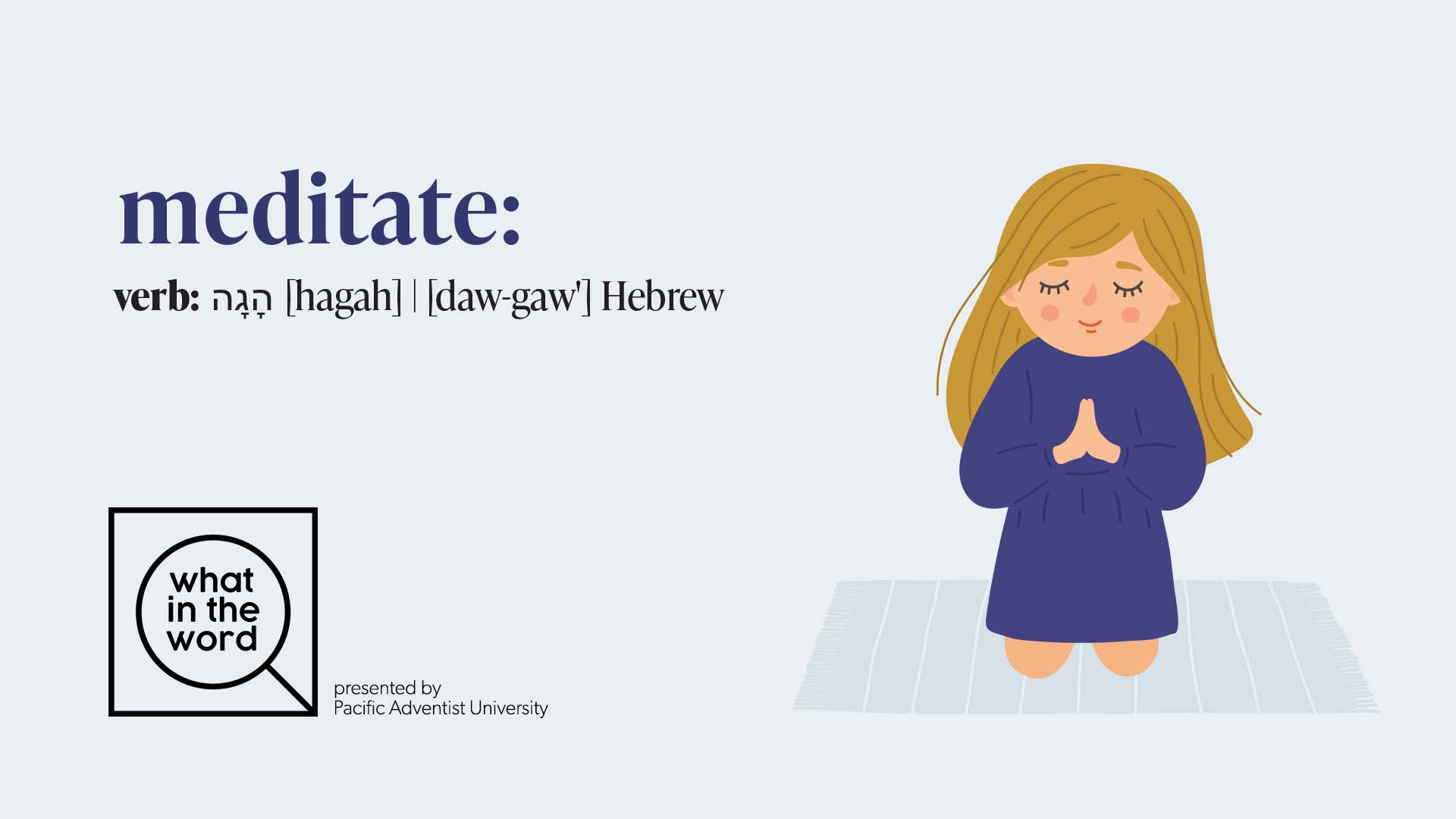One way to help Christians grow and become deeply rooted in the Word is to meditate on the Word of God. Meditate is rendered hagah in Hebrew. “It means to murmur (in pleasure or anger); by implication, to ponder: imagine, meditate, mourn, mutter, roar, speak, study, talk, utter.”1 The word meditate occurs 60 times in the Bible and is translated in various ways.2 “The actual idea of meditation literally is to ponder, dwell on and mutter the Scripture to ourselves so that it starts to take root in our hearts.”3
Reading the Word alone is not enough. We must have time for meditation on the Word of God. Reading the Bible is like taking a bite of food. Meditation is like chewing and munching upon the food, so that we can feel the sweetness of the delicacy before digesting it. Meditation allows the mind to ruminate more on the words read or preached. It is giving space in the mind so that they can ride on the wings of God’s Word.
The Bible has many references on the concept of meditation. For instance, Isaac went into the field to meditate and pray as he waited for the entourage that would bring his wife (Genesis 24:63). Joshua, Israel’s new leader, was called by God to meditate day and night on the Word of God (Joshua 1:8). The Psalmist said the blessed man is the person who delights in God’s law and meditates on it day and night (Psalm 1:2). The true servant of God meditates on God’s greatness during the watches of the night (Psalm 63:6). Paul counselled young Timothy to meditate on his teachings, so that he could gain new insights from them
(1 Timothy 4:5). We need to meditate on His law (Psalm 119:97), His works (Psalm 111:2), His divine attributes (Psalm 119:27) and also His leading in the past to gain a divine perspective on our lives (Isaiah 30:31; Genesis 50:20).
Meditation allows the mind to focus on a specific object. Without focus, our minds can be easily distracted. There are millions of distractions: our mobile phones, the noise of the traffic, babies crying, the noisy chatter of the crowd and many more. Noise pollution distracts us. This causes our mind to become like a monkey, jumping from object to object. In a noisy world, when other voices drown out the voice of God, we need to be still, to meditate on His Word (Psalm 46:10). Intentional meditation results in focused attention. With deep attention, we can gain clarity and fresh perspectives on His Word.
Meditation allows us to fill our minds with the true, lovely, excellent and praiseworthy things of God. (Philippians 4:8). Meditation allows us to gain deeper insights from God’s Word (Psalm 119:99). Meditation changes us through the writing of God’s laws in our minds as a result of habitual ruminating on God’s word (Jeremiah 31:33). Meditation was a spiritual habit practiced by some of the spiritual giants of history, like Martin Luther. Meditation allows Christians to walk with God on earth as Enoch did. Our mind becomes a portable sanctuary and He communes with us day and night. In contemplating the lofty ideal He placed before you, you will be uplifted to a pure and holy atmosphere, even into the presence of God. When you abide there, there goes forth from you a light which radiates to all who are connected with you.
1. <blueletterbible.org/lexicon/h1897/kjv/wlc/0-1/>.
2. <cwgministries.org/store/meditation-how-study-bible-presence-god-ebook>.
3. <justdisciple.com/christian-meditation/>.
Simon Davidson Lecturer, school of theology, Sonoma College, Papua New Guinea.






